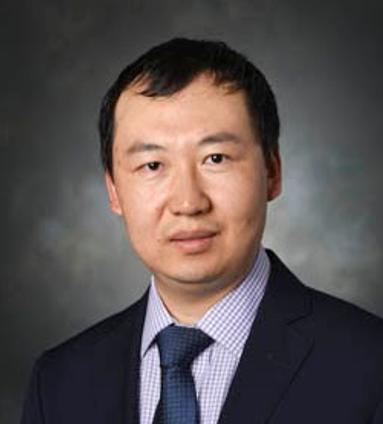Invited Speaker

Tao Zhou
Wormley Family Early Career Professor, The Pennsylvania State University, USASpeech Title: Self-assembly Enabled Printable and Stretchable Conductor for Human Interface
Abstract: Soft and stretchable conductors with high electrical conductivity and tissue-like mechanical properties are essential for both wearable and implantable electronic devices. Liquid metal-based conductors are particularly promising due to their excellent metallic conductivity and ultralow stiffness. However, the surface oxidation of liquid metal particles within polymer matrices presents a significant challenge, hindering the formation of continuous conductive pathways in elastic composites. This study introduces a printable composite material combining liquid metal and a conducting polymer, which undergoes a self-assembly process to achieve exceptional properties. The material demonstrates high conductivity on its bottom surface while maintaining an insulated top surface, remarkable stretchability (>800%), and a modulus comparable to human skin. Leveraging these attributes, the composite is used to fabricate skin-integrated strain sensors and electromyogram sensors via printing.
Keywords: stretchable, soft, human interface, printing, bioelectronics
Biography: Dr. Tao Zhou is Wormley Family Early Career Professor at Penn State University in the Department of Engineering Science and Mechanics, Biomedical Engineering. He is also a core faculty member of the Center for Neural Engineering (CNE) and affiliated with Huck Institutes of The Life Sciences and Materials Research Institute. Dr. Zhou received his B.S. and M.S. from Tsinghua University. He received his Ph.D. in Chemical Physics from Harvard University followed by postdoc research at MIT. His work has been published in top-tie peer-reviewed journals Science, PNAS, Nature Materials, Nature Methods, Nature Nanotechnology, Nano Letters, Advanced Materials, Angewandte Chemie, etc. He received awards and honors including Distinguished Graduates of Beijing (2013), National Scholarship for Graduate Students (2013), Harvard CBI Simmons Awards (2015), MRS Best Oral Presentation Award (2020), Ralph E. Powe Junior Faculty Enhancement Award (2024) and NSF CAREER Award (2025). His group work at the intersection of materials science, electronics, and neuroengineering, with an overall goal of studying/manipulating the nervous systems and improving human health.

